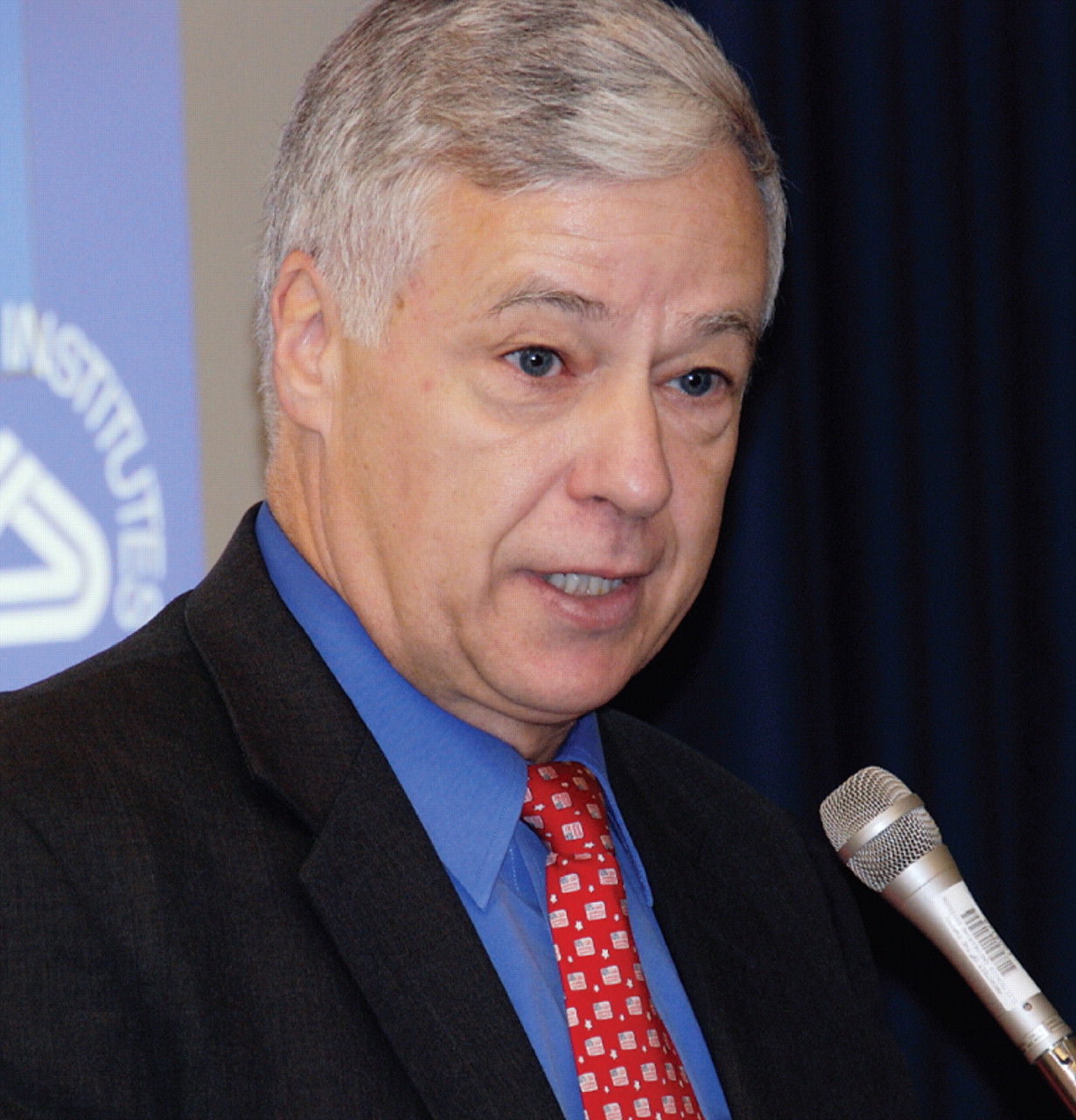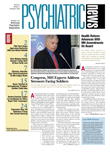APA reiterated its support for expanded mental health services and research for members of the U.S. Armed Forces and their families at a Capitol Hill symposium cosponsored with the National Alliance on Mental Illness in late September as part of Mental Illness Awareness Week.
APA is on record urging Congress to improve access to mental health services—including those for substance use disorders—for returning soldiers and their families, reduce mental illness stigma, and boost funding for the Veterans Health Administration workforce. APA has also testified in favor of increased funding for research on posttraumatic stress disorder (PTSD), traumatic brain injuries (TBI), substance abuse, and suicide.
“Many young service members are just a few months away from childhood and seeing things they hope never to see again,” said Rep. John Fleming, M.D. (R-La.), at the symposium. Fleming formerly served as a physician in the U.S. Navy and has experience treating substance abuse disorders.
Fleming also serves on the House Armed Services Military Personnel Subcommittee, which has held hearings on legislation to increase the number of scholarships for training mental health professionals, especially those qualified to work with military populations, and to require the secretary of defense to create a demonstration project to provide postdeployment mental health debriefings for all returning troops.
Substance abuse among troops represents another area of heightened concern, added neuroscientist Timothy Condon, Ph.D., deputy director of the National Institute on Drug Abuse. “We know that social stressors increase the risk of initiation and use of drugs, addiction, and risk of relapse from recovery.”
One of the current wars' most common injuries can be tied, at least hypothetically, to substance abuse, Condon said.
“Not much data links substance use disorders with TBI, but the orbital frontal cortex is affected by TBI and is also involved in substance use disorders due to its role in inhibitory control, executive function, and decision making,” he said.
Smoking is one coping mechanism for those under stress, Condon noted, and smoking rates are higher in the military than in the general population—32 percent versus 25 percent. Even those who have quit smoking often start again under the stress of deployment.
In addition, alcohol use is also common in military populations. About 42 percent of soldiers in surveys over the last several years say they have had at least one recent binge-drinking episode, compared with just 21 percent among comparable civilians.
Illicit drug use, however, is down in the military, probably because of the intense stigma against it and the current career-ending, no-tolerance policy, Condon noted.
At the same time, better battlefield medicine means more wounded soldiers survive, some of whom will then live with chronic pain. Treating that pain with opiates may lead to increased risk of substance use disorders, he said.
Suicide in the armed forces has risen sharply in recent years to rates equal to those in comparable, demographically adjusted civilian populations, prompting a $60 million study of suicidality in the Army and Marines (Psychiatric News, September 21, 2007, and June 20, 2008). Traditionally, suicide rates in the military have been much lower than those in civilian populations.
The study will survey thousands of soldiers and marines at every step in their careers, from enlistment, through training and possible deployments, to and beyond discharge, said J. John Mann, M.D., a lead investigator in the four-university coalition working on the study. Mann is the Paul Janssen Professor of Translational Neuroscience in the Department of Psychiatry at Columbia University and director of research at the New York State Psychiatric Institute (Psychiatric News, August 21).
As many as 80,000 new recruits will undergo a clinical evaluation along with biological measures of stress and resilience at baseline, and contribute DNA and RNA. After combat or other serious events, researchers will take another set of biomarkers from the subjects to look for methylation or other changes. Those cases will be matched with controls for comparison.
Researchers and military personnel hope that intensive data gathering will help reveal biological and other patterns of vulnerability and resilience, said Mann.
“Individuals who develop psychiatric illnesses in stressful settings almost always have preexisting stressors that may not be detected in screens,” he pointed out. “A suicide is almost always a consequence of diagnosable psychiatric illness.”
As part of the study, researchers will conduct full psychological autopsies of all personnel who completed suicide.
“Combined with a review of military investigations into suicides and medical autopsies, [the psychological autopsies] should help us learn the facts rather than leaving us with speculation,” said Mann.
Psychological autopsies include interviews with the friends, relatives, and colleagues of the deceased to gain insight into that individual's thoughts and feelings prior to committing suicide. The process can also be helpful for the interviewees because it gives them a chance to talk and ask questions and perhaps get help to deal with feelings of loss, shame, guilt, or isolation, he said.
Service members need support in gaining access to care and overcoming stigma, emphasized Rep. Michael Michaud, (D-Maine), chair of the House Veterans Affairs Health Subcommittee. When he visits U.S. forces in Iraq and Afghanistan, Michaud said he always asks the commanding general at the base about what he is doing to reduce the stigma against seeking mental health help, he said.
“They always tell me they are doing everything possible,” said Michaud. “But inevitably, some lower-ranking soldier comes up to me later and says, ‘We're not getting enough help.’ ”
He praised APA's efforts in working with Congress to overcome stigma issues and obstacles to access.
“Your input to legislation is invaluable,” Michaud said. “Regardless of how the political winds blow, it is important to stay active on both sides of the aisle.”

